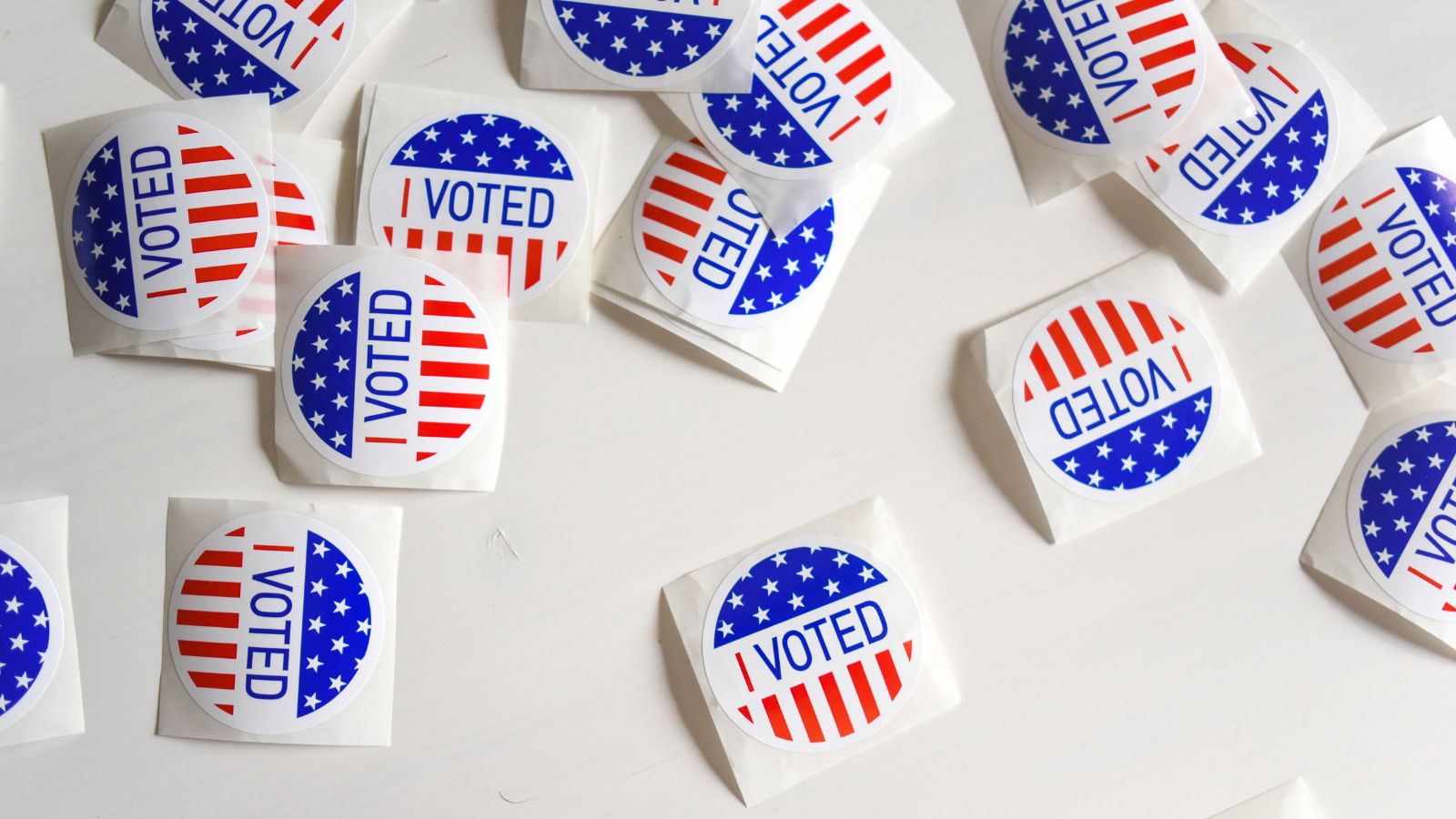Wisconsin residents will cast ballots across the state Tuesday, weighing in on a range of local races, school referendums, constitutional amendments and the presidential primary.
Polls open at 7 a.m. on Tuesday and will be open until 8 p.m. To find out what’s on your ballot and your polling place location, visit myvote.wi.gov.
Here are five things we’ll be watching for Tuesday.
1. ‘Uninstructed’ primary voters
Wisconsin residents will have the opportunity to vote in Wisconsin’s presidential primary Tuesday, even though President Joe Biden and former President Donald Trump have both already won enough delegates to secure their respective party’s nominations.
Voters will be presented with a ballot that has both the Democratic and Republican primaries listed on them. They are able only to vote in contests for one of the parties. If they vote in both, their ballot will not be counted for the presidential primary.
A key question is whether a substantial bloc of Democratic voters will cast their votes for “uninstructed delegation” to protest Biden’s handling of the Israel-Hamas war in Gaza. Similar protest campaigns against the president have pushed voters to cast “uncommitted” ballots in Democratic primaries in other states. In Minnesota, for example, “uncommitted” received almost 19% of the vote. It received a little more than 13% in Michigan.
We’re curious if the protest campaign can continue to draw votes, even after the race is settled and many journalists and voters are turning their attention to November’s general election.
An advocacy group called Listen to Wisconsin is encouraging Democrats to vote uninstructed. The group recently sent mailers to 200,000 voters, instructing them to “tell the White House: count me out for genocide.” WisPolitics.com reports that Listen to Wisconsin has a goal of 20,000 uninstructed votes.
Five Democratic state lawmakers have also signed onto a letter encouraging Wisconsin residents to vote uninstructed, writing that they “have an undeniable responsibility to stand with the Palestinian people in loving solidarity and demand an end to military aid to Israel and ensure the taxpayers are no longer complicit in a genocide that is funded by our government.”
2. School referendums
Ninety-one referendums to increase school spending in different communities around the state will be on the ballot Tuesday, building on the 10 that already took place in February.
The referendums, led by a four-year, $252 million request by Milwaukee Public Schools, will ask voters to increase their property taxes to pay for capital projects or operations. The Milwaukee referendum would result in a property tax increase of $216 per $100,000 of assessed property value, according to an MPS fact sheet.
Last spring, there were 83 referendums on the April ballot, but just 46 of them (55%) were approved, according to the Wisconsin Policy Forum. We’re watching to see if voters are willing to get their wallets out to help fund public schools or if support lags for a second year in a row.
3. Partisanship in school board races
Elections for seats on scores of school boards across Wisconsin will also be on the ballot Tuesday, and the Wisconsin State Journal reports that partisan players are wading into the nominally nonpartisan races.
As of last week, some 77 school board candidates have been backed by GOP groups, including various county Republican parties, while 28 candidates have been endorsed by Democratic groups, the State Journal reports.
This builds on a previous trend, like in 2022, when Republicans and Democrats were also involved in school board races. Former Lt. Gov. Rebecca Kleefisch, a Republican who was running for governor at the time, even endorsed dozens of candidates in the local, nonpartisan contests.
4. Judges
As we noted in last week’s newsletter, 56 of Wisconsin’s 261 circuit court judgeships will be on the ballot Tuesday. Circuit court judges make up the bottom tier of the state’s court system and collectively handle hundreds of thousands of cases each year.
Elected to six-year terms, circuit court judges enjoy broad autonomy and far-reaching authority in the cases they oversee. Despite that power, just 10 of 56 circuit court races will feature a contested election. Among the 47 incumbents running, just four face a challenger.
5. Constitutional amendments
Finally, we’re watching to see if two amendments to the Wisconsin Constitution related to election administration will be ratified by voters. The first proposal seeks to ban local governments from using private grant funding to pay for election-related costs. The second seeks to prevent anyone who’s not an election official from performing “any task in the conduct of any primary, election, or referendum.”
There is uncertainty among election officials about how the broadly written proposals would be interpreted by state election officials and the courts — potentially upending the way some clerks facilitate their elections.
We’re curious to see if voters will pass the amendments, as they have overwhelmingly done with other proposed constitutional changes.
To learn more about the amendments and the questions clerks have, read Wisconsin Watch’s latest collaboration with Votebeat, a fellow nonprofit newsroom that is dedicated to covering election systems and voting.

What we’re watching this week
Tuesday
🗳️ Polls open at 7 a.m. for the spring nonpartisan election and partisan presidential preference primary. Visit myvote.wi.gov to see what’s on your ballot and find your polling location.
🗣️ Former President Donald Trump will hold a campaign rally in Green Bay. He’s scheduled to speak at 5 p.m. It’s the former president’s first visit to Wisconsin since August 2022, when he held a rally with GOP gubernatorial candidate Tim Michels.
Forward is a look at the week in Wisconsin government and politics from the Wisconsin Watch statehouse team.
This article first appeared on Wisconsin Watch and is republished here under a Creative Commons license.![]()
Debate Watch Parties Planned Across Southeast Wisconsin Tonight
9/10/2024 | Stuart J. Wattles
Gatherings taking place in Milwaukee, Waukesha, and Kenosha.
Enbridge Line 5 Pipeline Relocation Project Clears Another Hurdle
9/10/2024 | James Kelly
The Enbridge Line 5 pipeline relocation project cleared another hurdle following the DNR’s final environmental impact statement.
Wisconsin Supreme Court returns to hear pair of politically charged cases
9/10/2024 | Jack Kelly / Wisconsin Watch
The state Supreme Court will hear oral arguments in a pair of cases that ask the justices to answer a slate of politically charged questions.
Northern Wisconsin Football Week 3 Recap
9/9/2024
Rib Lake 52 Chequamegon16 (Game Stats HERE) (Listen to Game Audio) Phillips 50 Luck 6 (Game Stats HERE) (Listen to Game Audio) Birchwood/Winter 42 South Shore 29 Hurley 36 Prentice 8 (Game Stats HERE) Lakeland 12 Rhinelander 8 (Game Stats HERE) Medford 46 Antigo 12 Wausau East 27 Tomahawk 11 Manawa 21 Northland Pines 13 […]
Racine County Secures Grant for Urban Agriculture Project at Youth Detention Center
9/9/2024 | Stuart J. Wattles
The urban agriculture project aims to provide skills and experiences to youth residents.
